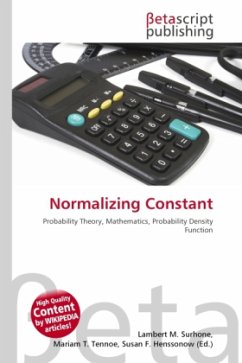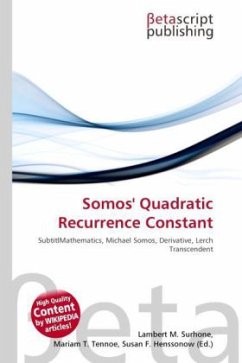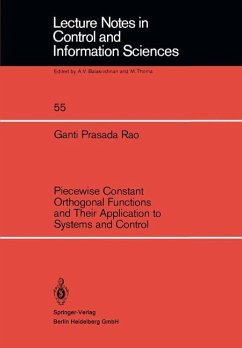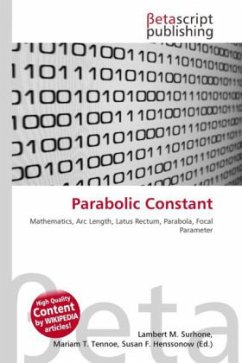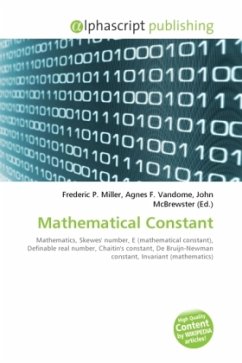
Mathematical Constant
Versandkostenfrei!
Versandfertig in 6-10 Tagen
23,99 €
inkl. MwSt.

PAYBACK Punkte
12 °P sammeln!
A mathematical constant is a number, usually a real number, that arises naturally in mathematics. Unlike physical constants, mathematical constants are defined independently of physical measurement. Some mathematical constants, such as e and , arise in many different contexts. Others, such as Graham's number or Skewes' number, only arise in a single specific context, but are notable because they are the earliest found, largest or smallest exemplar of a class of numbers. Many of the more interesting mathematical constants have a name, also when they can easily be specified by a short formula. W...
A mathematical constant is a number, usually a real number, that arises naturally in mathematics. Unlike physical constants, mathematical constants are defined independently of physical measurement. Some mathematical constants, such as e and , arise in many different contexts. Others, such as Graham's number or Skewes' number, only arise in a single specific context, but are notable because they are the earliest found, largest or smallest exemplar of a class of numbers. Many of the more interesting mathematical constants have a name, also when they can easily be specified by a short formula. What it means for a constant to arise "naturally", and what makes a constant "interesting", is ultimately a matter of taste, and some mathematical constants are notable more for historical reasons than for their intrinsic mathematical interest. Mathematical constants are always definable numbers and are almost always also computable numbers (Chaitin's constant being a significant exception).However, computable constants need not be easily computed; the De Bruijn-Newman constant, for example, has no known digits of its decimal expansion.





